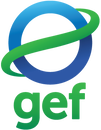GEF LME:LEARN session at the Marine Regions Forum: “Advancing implementation of the ocean SDG through ecosystem-based management”
The Forum hopes to form specific recommendations, highlight actionable outputs and establish and strengthen partnerships in support of the 2030 Agenda for Sustainable Development, especially Sustainable Development Goal 14 “Life Below Water”.
Drawing on more than two decades of the Global Environment Facility, with its executing agencies and partners, in supporting the implementation of transboundary marine projects, the GEF LME:LEARN contributes to this collective effort by highlighting key lessons and experiences from the projects through a session under Topic 1.2 on 'Strengthening regional frameworks for SDG 14 implementation'.
Session 1.2.3 Advancing implementation of the ocean SDG through ecosystem-based management
01 October 2019, 11:15 – 13:00
Room: Jade 2
Ecosystem-based management (EBM) is an integrated, cross-sectoral and transboundary approach that considers trade-offs in resource uses and helps protect diverse and productive ecosystems. Informed by science, it incorporates the entire ecosystem into decision-making and includes the private sector, non-governmental organizations and multilateral institutions. The transboundary approach is unique in bringing together countries to identify threats, problems and issues through a structured, common fact-finding and process dialogue. Large Marine Ecosystem (LME) initiatives and other regional frameworks facilitate EBM through development of regional multi-stakeholder partnerships. This session will present lessons learned from a number of regional initiatives and discuss how to accelerate implementation of SDG 14.
1115 – 1130 Introduction
- Introduction to ecosystem-based management and large marine ecosystems
Ivica Trumbic, Intergovernmental Oceanographic Commission of UNESCO / GEF LME:LEARN
1130 – 1215 Case studies and lessons learned
- Julian Barbière, Intergovernmental Oceanographic Commission of UNESCO
- Thandiwe Gxaba, Benguela Current Convention
- Dr. Sangjin Lee, Yellow Sea Large Marine Ecosystem
- Andrew Hudson, United Nations Development Programme
- Gaetano Leone, UN Environment - Barcelona Convention Secretariat / UNEP Mediterranean Action Plan, GEF-UNEP Med Programme
- Vladimir Mamaev, United Nations Development Programme - Europe and Central Asia
1215 – 1255 Discussion
- Is an LME adequate spatial level to implement the EBM approach in the context of Regional Ocean Governance?
- Is LME 5-module approach fit-for-purpose to reach SDG14 targets?
- What are the major challenges in implementation of LME projects?
- How do LME programs link to and coordinate with other area-based management approaches such as MSP, ICM and MPA?
- How can LME programs complement and coordinate with other regional ocean governance mechanisms such as regional seas and RFMOs?
- What other solutions could be offered to improve LME approach with a view to assisting countries to reach SDG14 targets?
1255 – 1300 Concluding remarks
For more information on the Marine Regions Forum, please visit https://www.prog-ocean.org/marine-regions-forum.



